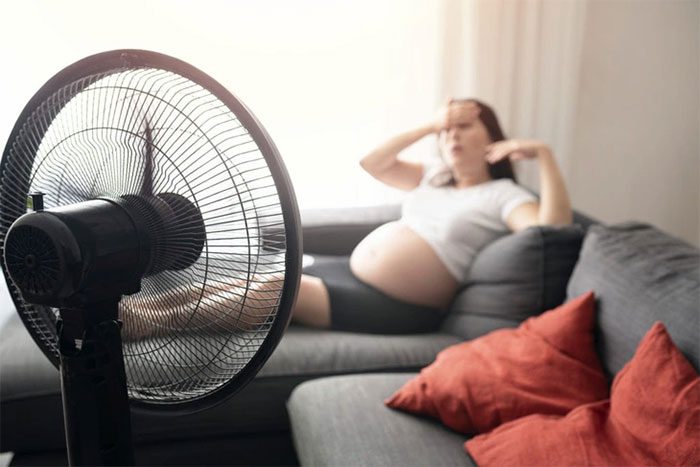On May 29, The Guardian reported on a study from the U.S. Centers for Disease Control and Prevention (CDC) indicating that heatwaves increase the rate of premature births, adversely affecting both the short-term and long-term health of infants.
Women of color, Spanish speakers, and those in low-income groups in the U.S. are the most affected by heatwaves.

Heatwaves not only stress pregnant women but also increase the risk of premature births – (Image courtesy of Getty).
The study was published against the backdrop of increasingly frequent and intense extreme temperatures due to climate change. In 2023, the world witnessed record-high temperatures, peaking in July.
In addition to the direct effects of heat, pregnant individuals are more likely to experience stress, heat exhaustion, and heat stroke due to elevated temperatures. This negatively impacts the fetus and daily activities.
“These findings indicate that low-income mothers are particularly vulnerable to the harmful effects of high temperatures and face numerous related issues“, said Lyndsey Darrow, lead author of the study and professor of epidemiology at the University of Nevada.
The researchers examined 53 million births from 1993 to 2017 across 50 urban areas in the U.S. After four consecutive days of high temperatures, scientists observed a 2% increase in premature births before 37 weeks of gestation and a 1% increase for births occurring between 37 to 38 weeks.
At this stage, the fetus resembles a normal newborn but is still not ready for birth, as the immune system is still developing.
“The rate of premature births is higher among women who cannot access air conditioning or endure high temperatures for extended periods”, Darrow concluded.
Further explaining, Darrow noted that high temperatures could trigger early contractions by releasing certain labor-inducing hormones, reducing blood flow, and causing dehydration, leading to premature births.
It’s important to understand that premature birth is the leading cause of infant mortality and affects many bodily functions such as respiration and neurological development throughout the child’s life.
This study reinforces medical advice on the importance of managing heat-related stress, especially for pregnant women.
“During pregnancy, we must always be cautious”, stated Nathaniel DeNicola, an obstetrician-gynecologist who authored a 2020 report on air pollution and premature birth. According to her, “more guidance from clinics or resources is needed to mitigate dehydration and stress for pregnant women due to extreme temperatures.”



















































